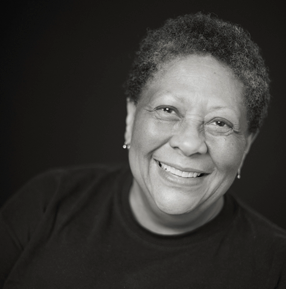The House on Moscow Street
It's the ragged source of memory, a tarpaper-shingled bungalow whose floors tilt toward the porch, whose back yard ends abruptly in a weedy ravine. Nothing special: a chain of three bedrooms and a long side porch turned parlor where my great-grandfather, Pomp, smoked every evening over the news, a long sunny kitchen where Annie, his wife, measured cornmeal, dreaming through the window across the ravine and up to Shelby Hill where she had borne their spirited, high-yellow brood. In the middle bedroom's hard, high antique double bed, the ghost of Aunt Jane, the laundress who bought the house in 1872, though I call with all my voices, does not appear. Nor does Pomp's ghost, with whom one of my cousins believes she once had a long and intimate unspoken midnight talk. He told her, though they'd never met, that he loved her; promised her raw widowhood would heal without leaving a scar. The conveniences in an enclosed corner of the slant-floored back side porch were the first indoor plumbing in town. Aunt Jane put them in, incurring the wrath of the woman who lived in the big house next door. Aunt Jane left the house to Annie, whose mother she had known as a slave on the plantation, so Annie and Pomp could move their children into town, down off Shelby Hill. My grandmother, her brother, and five sisters watched their faces change slowly in the oval mirror on the wall outside the door into teachers' faces, golden with respect. Here Geneva, the randy sister, damned their colleges, daubing her quicksilver breasts with gifts of perfume. As much as love, as much as a visit to the grave of a known ancestor, the homeplace moves me not to silence but the righteous, praise Jesus song: Oh, catfish and turnip greens, hot-water cornbread and grits. Oh, musty, much-underlined Bibles; generations lost to be found, to be found.
Credit
From The Homeplace, published by Louisiana State University Press. Copyright © 1990 by Marilyn Nelson. All rights reserved. Used with permission.
Date Published
01/01/1990

